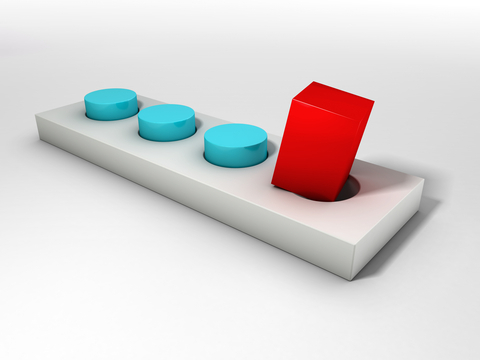Blog
One size does NOT fit all
Imagine if every student used the same problem-solving methods, the same test-taking strategies, the same note-taking schemas, and the same organizational structures—what would happen? In such a uniform educational system, some students would succeed, while others would falter, because every student is different and “one size does NOT fit all.” What works for one student may not work for another, and vice versa. While there are certainly strategies and approaches that frequently work for a large number of students, we know that the human brain is dynamic, complex, and specialized for each person’s optimal functioning. As a result, for many students, those “one size” strategies and approaches will not work. Moreover, each student comes with their own personality, set of strengths, affinities, interests, and needs that make them who they are. So—with all these individual differences in play—it becomes incumbent upon the adults in a student’s life to help him identify which educational strategies and approaches will work for him.
Richard Kurwin and Allen Mendler, aut hors of “Discipline with Dignity,” use an apt analogy to explain why one size does NOT fit all in the classroom: No one would go to a doctor who treats every headache the same way. Although two patient’s headaches may seem similar on the surface, one might be due to allergies and one might stem from stress. So, prescribing ibuprofen for both patients, to dull the pain, would not be a thorough or effective treatment plan to address each underlying problem. Knowing the causes of the problem shows exactly why using the same solution for every headache doesn’t make sense: Not every headache is the same! So, in each case, we expect our doctors to provide individualized treatment plans.
hors of “Discipline with Dignity,” use an apt analogy to explain why one size does NOT fit all in the classroom: No one would go to a doctor who treats every headache the same way. Although two patient’s headaches may seem similar on the surface, one might be due to allergies and one might stem from stress. So, prescribing ibuprofen for both patients, to dull the pain, would not be a thorough or effective treatment plan to address each underlying problem. Knowing the causes of the problem shows exactly why using the same solution for every headache doesn’t make sense: Not every headache is the same! So, in each case, we expect our doctors to provide individualized treatment plans.
Likewise, no two struggling students are the same. One might be highly motivated, but struggle to break down assignments into manageable steps. Another may have trouble initiating or completing schoolwork when the task at hand doesn’t interest them or doesn’t make sense. Both students, whose grades are almost identical, present specific needs as different as allergy headaches and stress headaches. Both students need their own educational plan to address and overcome the underlying problem they are facing.
Perhaps most importantly, both of these students require the appropriate guidance, or “suggested prescription,” from educational professionals and guardians. Teachers and parents can make all the difference in guiding children to seek out, select, practice, and employ the methods that work best for them. Exploring different approaches togethercan be a great way to encourage your child’s individuality and help her take ownership of her academic success. But- don’t forget that your best problem-solving methods are unique to you too, and may not be the same as your child’s strongest methods.
Educators increasingly recognize the fact that each student needs their own approach to learning. In the classroom, more and more instructors teach a variety of approaches to one type of problem, so that each student can select what works best for them. Teachers find ways to motivate and discipline each student individually, to manage each class of unique cooperating minds, and to help each student seek out additional, personalized resources whenever possible. This new system of teaching is often referred to as “Differentiated Instruction,” and is sweeping the educational community quickly, though perhaps not quickly enough.
At Engaging Minds, we believe that one size does not fit all, and we seek out individualized approaches for each of our students. While we do have clear techniques and a proven methodology, our teachings are flexible and customized to each of our students. For example: while all students need a way to track their assignments, some might select a classic agenda, while others may prefer an online app. Regardless of their specific choice, each student has the opportunity to learn and practice a variety of approaches until they find the one that fits them best. Executive function coaches at Engaging Minds help students develop or choose their own organizational systems, assignment trackers, exam plans, and efficient working schedules. No two sessions and no two educational plans are exactly the same at Engaging Minds, because no two students are the same.

